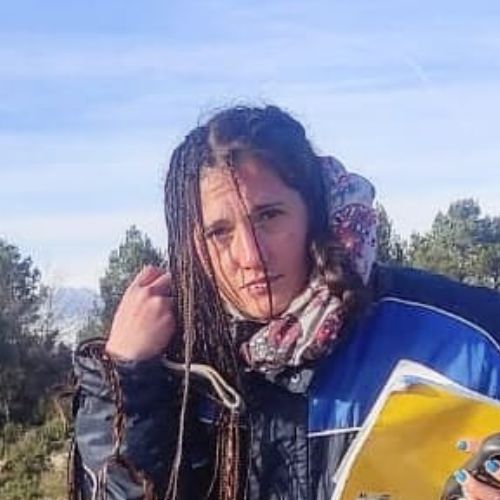
Perceval Camps Marina
Marina Perceval Camps is a biologist currently doing her PhD about the use of detection dogs in wildlife conservation projects. Apart from his biology degree, from a very young age she has been studying animal behavior and canine psychology. She also has been interested on marine biology and she has training on scientific diving. During the degree, in every turtle nesting season, she was working on the beaches of Cabo Verde with marine turtles. Her final degree project was about photoidentification of baby turtles. That sparked her interested in the study of tools for conservation.
She did a MSc in Liverpool John Moores University about Environmental Science and Drone applications and her MSc thesis was in Botswana, analyzing the impact of elephant activity on the old African trees. She has been part of several conservation projects working with different species as seals in the Netherlands, cetaceans in Canary Islands and Cabo Verde, primates in Tanzania and elephants in Botswana. It was during these projects that she found out the applications of detection dogs in wildlife conservation. In Botswana she was learning about poacher tracking and species monitoring with dogs.
Nowadays, Marina is part of an association of wildlife detection dogs in Spain, Odor Naturae, and she is working with the Natural Science Museum of Granollers testing the use of dogs looking for bat carcasses to determine the bat mortality caused by wind farms. As a part of her thesis, she is testing the efficiency of dogs and also analyzing the permanence of the carcasses in the field. The other part of the thesis will focus more on the training and welfare of the dog.



